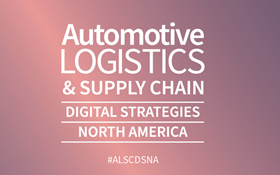BMW starts using autonomous platform truck for press tools and blanks
BMW has introduced an electric autonomous platform truck at its Regensburg production plant in Germany to move press tools and steel blanks. The truck can carry a payload of up to 55 tonnes. It is provided by equipment supplier Pefra and driven by autonomous technology provided by Aitonomi.
According to BMW, the truck uses light detecting and ranging (Lidar) sensors to navigate autonomously through the press plant at 4 km/h. The 3D Lidar technology scans and measures the surrounding environment for distances to generate a 3D map (or scatter plot).

BMW said the system was one of a kind and currently did not exist anywhere else in the world.
“We see tremendous potential in the rollout of autonomous logistics solutions,” said Tobias Müller, press plant maintenance manager at BMW Group Plant Regensburg. “The emission-free electric vehicle will allow us to make manufacturing processes at our press plant even more efficient and more flexible, as well as reducing transport journeys and lead times. This will not only boost productivity, but also save energy and improve occupational safety for our employees.”
The autonomous platform truck is the latest development in BMW’s connected iFactory, its strategy for the future of car production. Other examples include its the use of automated guided vehicles (AGVs) to move steel blanks and panels around its press facility in Swindon, UK and the use of a data cloud to manage autonomous logistics at its component plant in Landshut.
The Regensburg plant processes approximately 1,100 tonnes of steel every day, equivalent to a daily output of 131,000 pressed parts across 113 different vehicle body components. In the process the press shop generates around 80,000 tonnes of offcuts per year, which are recycled. A recycling press turns the offcuts into 40x40cm steel cubes, which are sent to the steel supplier for processing into secondary steel. Using secondary steel, BMW has reduced carbon emissions by two tonnes per tonne of steel.






